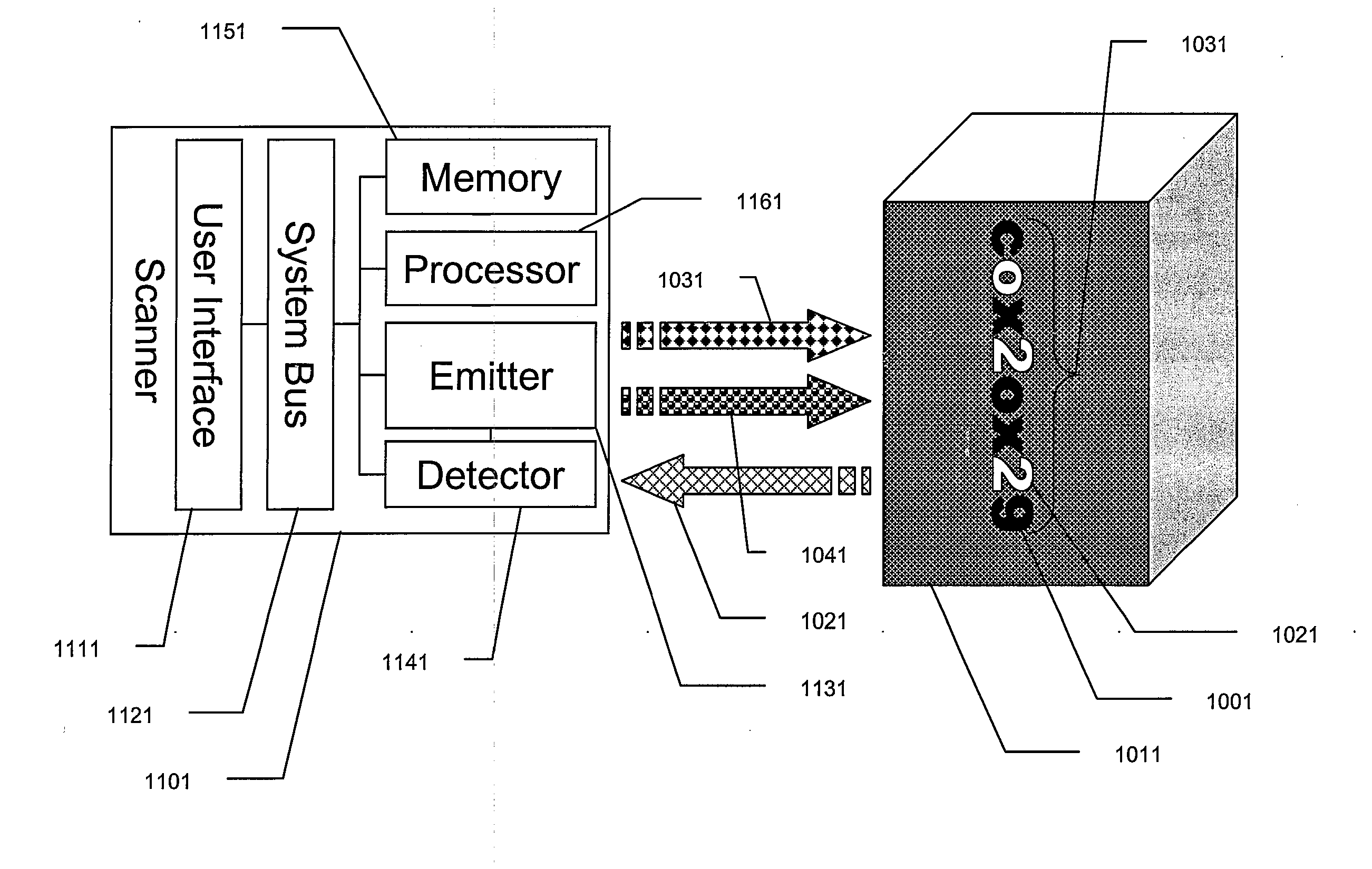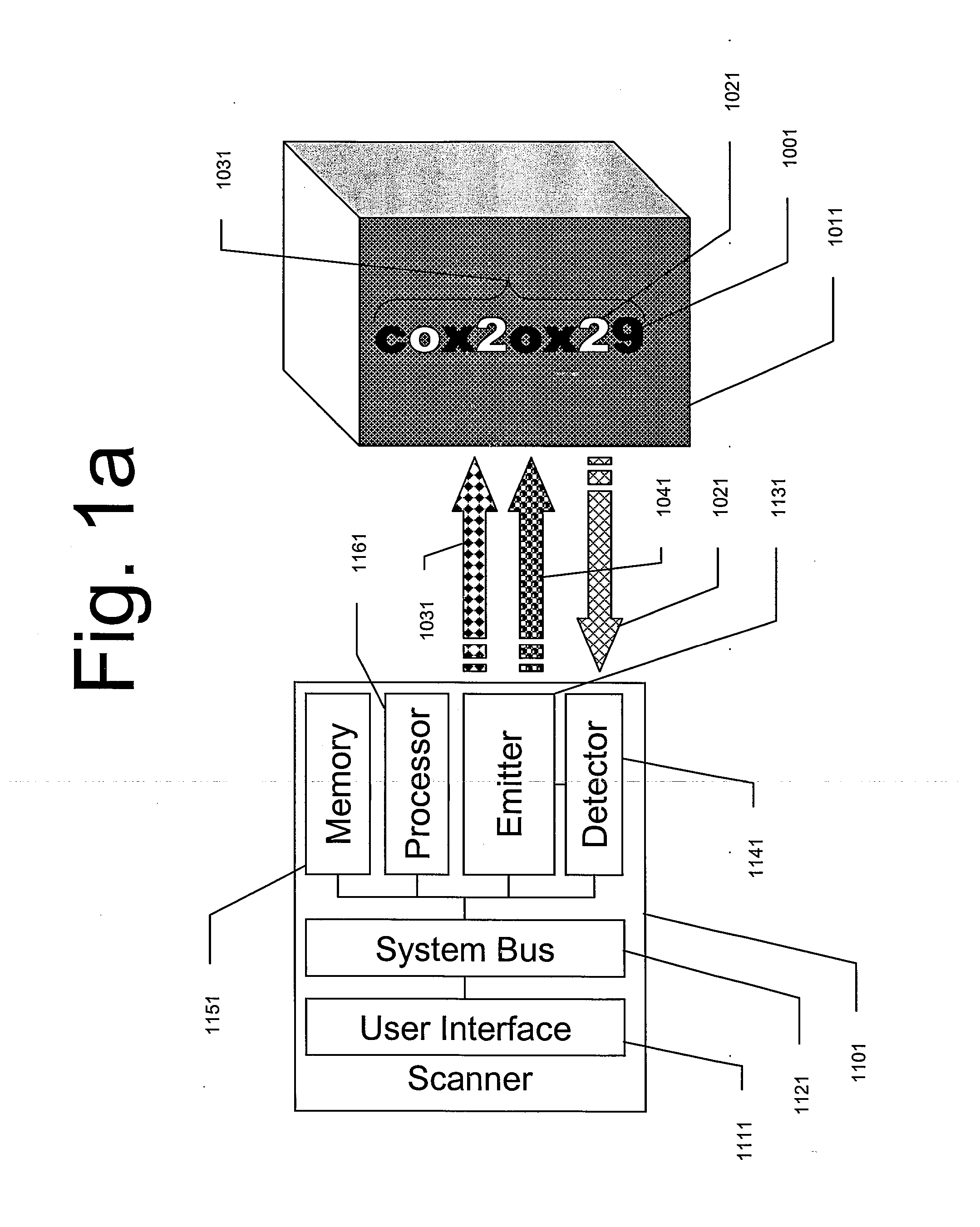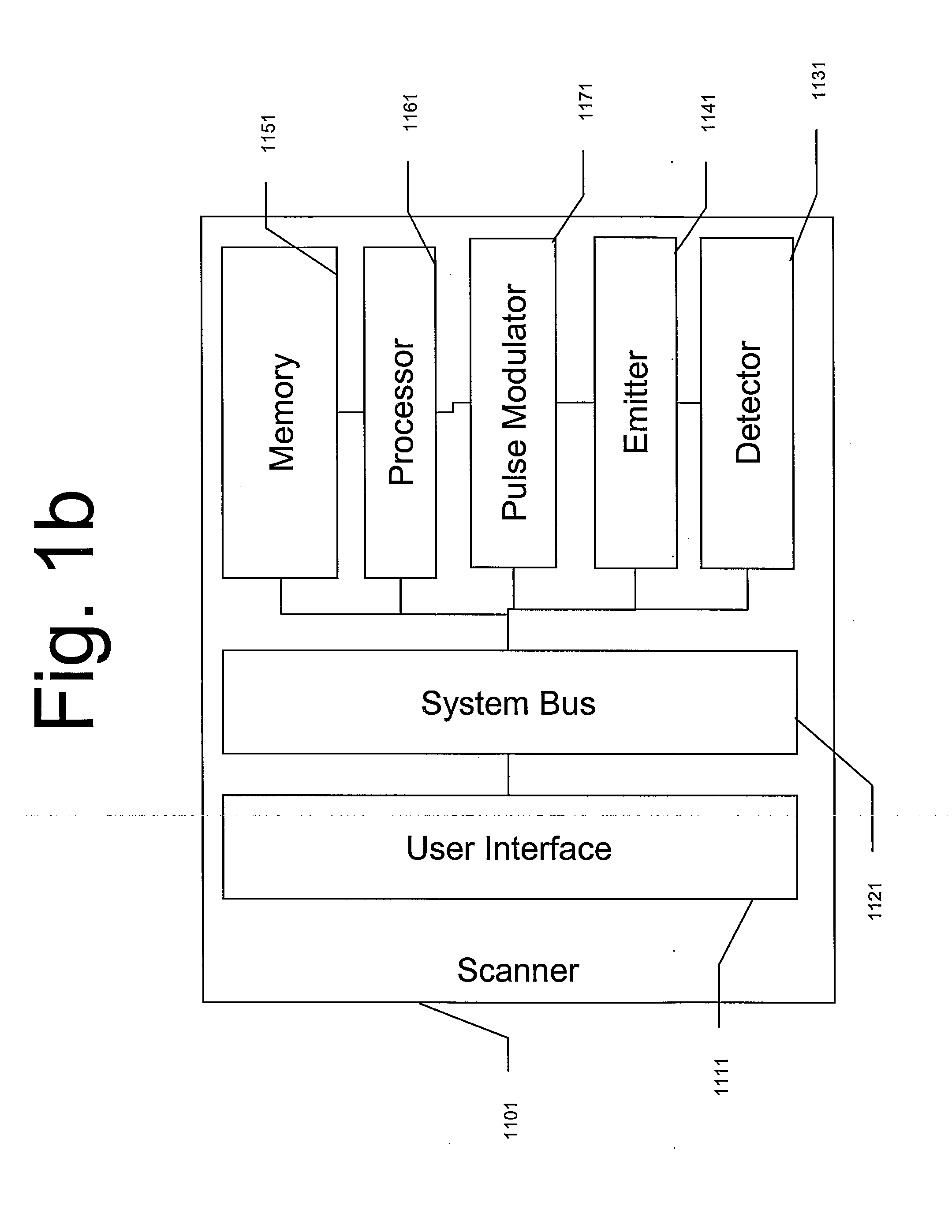Steganography with photo-responsive dyes
a dye and steganography technology, applied in the field of dyes and inks, can solve the problems of counterfeiting or otherwise circumvented, and achieve the effect of different relaxation/recovery times
- Summary
- Abstract
- Description
- Claims
- Application Information
AI Technical Summary
Benefits of technology
Problems solved by technology
Method used
Image
Examples
Embodiment Construction
[0025]The following detailed description of the invention refers to the accompanying drawings. The same reference numbers in different drawings identify the same or similar elements. Also, the following detailed description does not limit the invention. Instead, the scope of the invention is defined by the appended claims and equivalents thereof.
[0026]Dyes such as anti-stokes fluorescent dyes, or similar dyes that may be used to produce inks or pigments that are visible but also responsive to photo-excitation as specific (visible or non-visible) frequencies may be used to generate visible codes that have a secondary, frequency-specific component which may or may not be visible.
[0027]In one embodiment, two photo-responsive dyes having the same emission frequency but disparate excitation frequencies may be applied to create a visible alpha-numeric, bar-code, two-dimensional image-based code, or three-dimensional and / or holographic image-based code. Part of the code printed in the firs...
PUM
| Property | Measurement | Unit |
|---|---|---|
| excitation frequency | aaaaa | aaaaa |
| response frequency | aaaaa | aaaaa |
| fluorescence | aaaaa | aaaaa |
Abstract
Description
Claims
Application Information
 Login to View More
Login to View More - R&D
- Intellectual Property
- Life Sciences
- Materials
- Tech Scout
- Unparalleled Data Quality
- Higher Quality Content
- 60% Fewer Hallucinations
Browse by: Latest US Patents, China's latest patents, Technical Efficacy Thesaurus, Application Domain, Technology Topic, Popular Technical Reports.
© 2025 PatSnap. All rights reserved.Legal|Privacy policy|Modern Slavery Act Transparency Statement|Sitemap|About US| Contact US: help@patsnap.com



